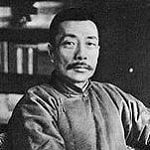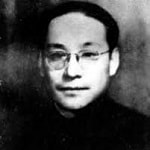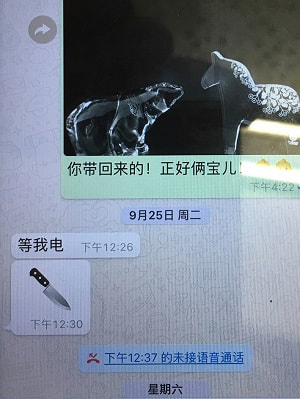Chinese Civil War: A Lesson for America
May 14, 2019 | updated June 31, 2019
|
If history is any guide, America doesn't stand a good chance of winning its rivalry with China, because America is in a position almost identical to the one that faced Republic of China during the Chinese Civil War (1927-1950). That war ended with the Communists taking control of the mainland China and establishing the People's Republic of China, and the Republic of China fleeing to Taiwan and continuing its government there.
The Chinese Communist Party started as an underground operation in the Republic of China in 1921. Beginning from a dozen revolutionary activists who risked their lives in pursuing their ideology, it grew into a formidable force that swept over the mainland China in late 1940s. While there are countless first-hand accounts, reflections, and scholarly articles that document and examine the history of this particular period, there is one thing that is clearly standing out and unquestionable: CCP is an expert of asymmetrical war. It is both resilient and skilled in the face of adversity; it is experienced in dealing with a strong adversary. Several attributes that characterize the success of CCP: 1. Good at “hiding our capabilities and biding our time” or “韬光养晦” (Click here to see the explanation for the phrase). CCP took advantage of the Second Sino-Japanese War (1937–1945) and expanded its military capability rapidly after it agreed to follow the leadership of the Republic of China as part of the Allies of World War II. In 1940, commanded by General Peng Dehuai, a professional of great integrity rare in CCP, CCP’s army launched Hundred Regiments Offensive against the Japanese army in central China. The campaign however has been criticized as a blunder in CCP history textbook for the reason that it exposed CCP’s military capability too early. 2. Ruthless in silencing anyone who posed a risk of exposing the secret of its leader or operation. In doing so, CCP had built a special force, dubbed as the “knife”, as contrast to the army that was dubbed as the “rifle.” This secret force is the precursor of current Chinese intelligence agencies. Included among its tasks, as its name suggested, is assassination. 3. Masterful in cryptography. CCP had a bureau specialized in intercepting and decrypting communications among different divisions or agencies in the Republic of China, in a way analogous to internet hacking today. 4. Skillful in inciting ideological campaigns among college students and professors and adept at creating public crisis to rip apart the social fabric |
while suppressing the freedom of expression in the territory it controlled.
5. Effective and efficient in infiltrating various ranks of Republic of China’s army and government. It was made public after CCP took the control of China that many entourage and family members of Republic of China’s top military commanders, including their staff in critical positions, are CCP’s spies. The institutional maladies of the Republic of China that led to its defeat: 1. The inefficiency of a pro-democracy government in managing public opinions and mob events. 2. Extensive partisanship or multiple factions within the army and government, which covered and aided CCP’s intelligence operations. 3. Corruption. CCP won the Chinese Civil War largely on intelligence operations, even though the Republic of China held the supremacy in its military equipment and army force for the most part of the period. (Click here to read a review article on CCP’s official website about the history of CCP’s intelligence operations.***) CCP is repeating the same strategies and tactics against America. A little twist that might be of interest to those “friends of China”: numerous CCP supporters in Chinese Civil War, professors, writers, artists, college students, and even many CCP spies, ended up miserably after CCP took the power. Many were sent to jails, labor camps, or correctional schools in remote countryside in 1950s or 1960s. If history is any guide! *** The article posted under the link becomes "403 Forbidden" a month after the launch of this website. Click 细节决定存亡 周恩来鲜为人知的秘战艺术 on an alternative website for the same article (this url is also replaced with an irrelevant content as of 2020). A pdf copy of the article saved earlier from the official site could be downloaded below:
| ||||||
A Few Illustrations
|
|
Eternal Wave《永不消逝的电波》 A classic patriotic film that depicts the operation of a radio station by a CCP couple for intelligence gathering and transmitting at Shanghai, during the Second Sino-Japanese War and Chinese Civil War. This video has been removed from the Youtube. |
|
Lu Xun 鲁迅 (1881 –1936)
An icon of modern Chinese literature for his sharp insight and pungent criticism, the leader of the left wing writers in the Republic of China, hailed as "the saint of modern China" and “the flagship of China's Cultural Revolution" by Chairman Mao Zedong at his death, and cited as “the great Chinese storyteller” by Vice President Mike Pence. In 1957, when prompted by a confident to the question “what if Lu Xun were still alive,” Chairman Ma Zedong answered, “Either he would continue to write, but in jail, or he would shut up if he had a grasp of the big picture.” |
|
Pan Hannian 潘汉年 (1906–1977)
A master of CCP’s intelligence operations in the Republic of China and a Deputy Mayor of Shanghai after CCP took over the mainland China. In 1955 Pan was accused of colluding with Japanese intelligence services and Japanese puppet government during the Second Sino-Japanese War. He was thrown into prison and died in jail in 1977. He was posthumously vindicated in 1982 as a loyal CCP member and an uncompromising Marxist. |
|
|
Chinese Immigrant Family Murdered in Houston Texas in 2014
In January 2014, a Chinese family of four in Houston were murdered in an execution-style. The case has not been solved but it is widely perceived as a work of Chinese espionage operation, relating to Zhou Yongkang, formerly a top CCP leader. Christine offered a brief review on the case [Click here to read], questioning the validity of the claim that linked the murder to Zhou Yongkang. She would have had second thoughts if she had known one more little detail: after the murder: rumor immediately surfaced in Chinese-American community that suggested the involvement of Chinese intelligence operation. No Chinese-American would have the courage to touch the topic if some Chinese “knife” was hanging over his/her head. |
|
A Knife Emoji Signaled the Disappearance of Former Interpol’s President in China
LYON, France--On October 7, 2018, the wife of Interpol’s president displayed to reporters an image of a knife that she last received from her husband Meng Hongwei. Meng Hongwei was China’s vice minister of public security and succeeded to the Presidency of Interpol on behalf of China. He had not been heard anymore after he went back to China and sent the “knife” message on September 25. In less than one hour after the wife spoke to the reporters, China announced that Meng Hongwei indeed was detained, under investigation. Click here to read the full story. |



